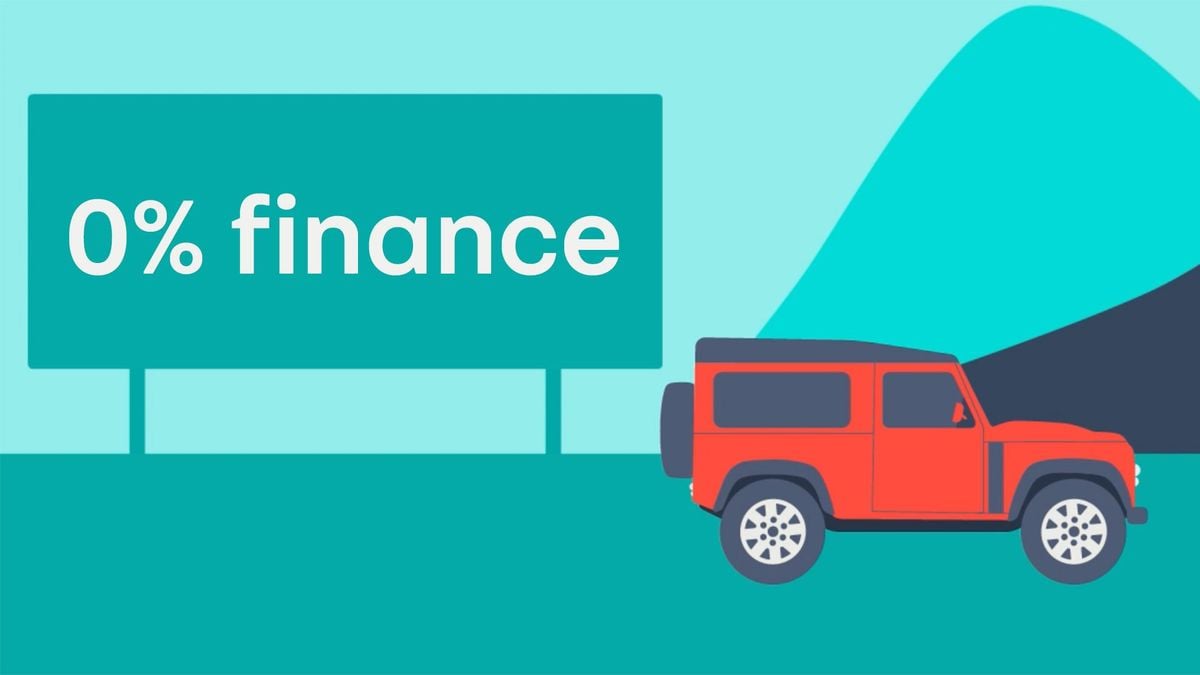Home>Finance>How To Work With Insurance Companies As A Contractor


Finance
How To Work With Insurance Companies As A Contractor
Modified: February 21, 2024
Discover effective strategies to work with insurance companies as a contractor in the finance industry. Maximize your profits and navigate claim processes smoothly.
(Many of the links in this article redirect to a specific reviewed product. Your purchase of these products through affiliate links helps to generate commission for LiveWell, at no extra cost. Learn more)
Table of Contents
- Introduction
- Understanding Insurance Companies
- Finding the Right Insurance Companies to Work With
- Establishing a Professional Relationship with Insurance Companies
- Submitting Claims and Documentation to Insurance Companies
- Negotiating with Insurance Companies
- Dealing with Claims Denials and Disputes
- Maximizing Reimbursements from Insurance Companies
- Building a Long-Term Partnership with Insurance Companies
- Conclusion
Introduction
As a contractor, working with insurance companies plays a vital role in your success. Whether you’re a general contractor, a roofer, a plumber, or any other type of contractor, understanding how to navigate the insurance landscape is essential. Insurance companies provide coverage for various risks, including property damage, liability issues, and workers’ compensation claims. By working closely with insurance companies, you can ensure that you’re adequately protected against potential losses, manage claims efficiently, and maximize reimbursements.
However, dealing with insurance companies can be a complex and sometimes frustrating process. Insurance policies are filled with industry-specific terminology and legal jargon, making it challenging to comprehend the coverage and claims process fully. Additionally, insurance companies have specific procedures and requirements that must be followed when submitting claims and documentation.
In this article, we will explore how to work effectively with insurance companies as a contractor. We will provide insights into understanding insurance companies, finding the right insurance companies to work with, establishing a professional relationship, submitting claims and documentation, negotiating, dealing with claims denials, maximizing reimbursements, and building long-term partnerships.
By implementing the strategies and tips outlined in this article, you can streamline your interactions with insurance companies, improve your chances of successful claim settlements, and establish a strong reputation in the industry.
Understanding Insurance Companies
Before diving into working with insurance companies, it is important to have a solid understanding of how they operate. Insurance companies are businesses that provide financial protection against potential risks. They collect premiums from policyholders in exchange for coverage and compensation for covered losses.
Insurance companies offer various types of policies, including property insurance, liability insurance, and workers’ compensation insurance. Each policy has specific coverage limits, terms, and conditions that determine what is covered and what is not.
It is crucial for contractors to thoroughly review insurance policies to ensure that they have appropriate coverage for their specific needs. This includes understanding the policy limits, deductibles, and any exclusions that may apply. By having a clear understanding of the insurance policy, contractors can avoid potential disputes and ensure that they are adequately protected in the event of a claim.
Insurance companies also have claims departments dedicated to handling and processing claims. When a contractor experiences a loss or damage covered by their insurance policy, they must file a claim with the insurance company.
Insurance companies assign adjusters to evaluate the claims and determine the appropriate payout based on the policy terms. These adjusters may be employed directly by the insurance company or work as independent adjusters. It is essential for contractors to establish a positive relationship with the assigned adjuster to facilitate a smooth and efficient claims process.
Furthermore, insurance companies have specific procedures and protocols for submitting claims and documentation. Contractors need to familiarize themselves with these requirements to ensure that their claims are processed promptly and accurately.
By understanding how insurance companies function, contractors can navigate the claims process more effectively and establish a stronger position when working with insurance companies.
Finding the Right Insurance Companies to Work With
When it comes to working as a contractor, finding the right insurance companies to partner with is crucial. Not all insurance companies are created equal, and choosing the wrong one can lead to unnecessary complications and delays in the claims process. Here are some key factors to consider when selecting insurance companies to work with:
- Industry Specialization: Look for insurance companies that specialize in providing coverage for contractors. These companies have a better understanding of the unique risks and challenges contractors face and can tailor their policies to meet your specific needs.
- Reputation and Financial Strength: Research the reputation and financial stability of the insurance companies you are considering. Check their ratings from independent rating agencies to ensure that they have a strong track record of financial stability and are capable of fulfilling their claims obligations.
- Policy Coverage and Limits: Evaluate the coverage and limits offered by different insurance companies. Ensure that their policies align with your specific requirements and provide adequate protection against potential risks.
- Claims Process: Consider the efficiency and effectiveness of the insurance companies’ claims process. Look for companies with a reputation for handling claims promptly and fairly.
- Customer Service: Assess the quality of customer service provided by insurance companies. Responsive and helpful customer service can make a significant difference when needing assistance with claims or policy-related queries.
- Price and Cost: While cost should not be the sole deciding factor, it is important to obtain competitive quotes from different insurance companies. Compare the coverage, limits, and cost to ensure that you’re getting the best value for your insurance premiums.
It’s also helpful to seek recommendations from other contractors or industry professionals who have experience working with insurance companies. Their firsthand experiences can provide insights into the pros and cons of different insurers.
By conducting thorough research and considering these factors, you can find the right insurance companies that align with your needs as a contractor. Establishing a partnership with reliable insurance companies will not only provide you with peace of mind but also ensure a smoother claims experience when the need arises.
Establishing a Professional Relationship with Insurance Companies
Building a professional relationship with insurance companies is essential for contractors. A strong and positive rapport can significantly streamline the claims process and improve communication. Here are some tips on how to establish a professional relationship with insurance companies:
- Communicate Clearly and Professionally: When interacting with insurance company representatives, maintain clear and professional communication. Clearly explain the details of the claim or inquiry, provide accurate information, and respond promptly to any requests for additional documentation or clarification.
- Be Prepared: Before contacting insurance companies, gather all necessary documentation related to the claim or policy inquiry. This includes contracts, invoices, photos, and any other relevant information. Being prepared will demonstrate your professionalism and help expedite the claims process.
- Establish Trust and Credibility: Insurance companies rely on contractors to accurately report damages and losses. Building trust and credibility is crucial. Provide thorough and honest information to ensure the adjusters have a complete understanding of the situation. Avoid exaggerations or falsifications, as it can jeopardize the relationship and future claims.
- Be Proactive in Preventing Claims: Insurance companies appreciate contractors who take proactive measures to prevent claims. Implement robust safety protocols, provide proper training to your team, and maintain regular maintenance of equipment and machinery. A lower number of claims can strengthen your relationship with insurance companies and potentially lead to better premium rates.
- Stay Informed: Keep up-to-date on industry developments, policy changes, and legal obligations related to your coverage. By remaining informed, you can better understand the claims process and the policies involved. It also allows you to engage in informed discussions with insurance company representatives.
- Provide Timely and Accurate Documentation: Accurate and timely documentation is essential for a smooth claims process. Ensure that you submit all necessary documents promptly and accurately. This includes incident reports, estimates, invoices, and any other supporting evidence related to the claim. Organized and thorough documentation demonstrates your professionalism and commitment to resolving the claim efficiently.
Remember, establishing a professional relationship with insurance companies is an ongoing process. Regularly communicate with your assigned adjuster, respond promptly to their inquiries, and maintain professionalism throughout all interactions. By doing so, you can foster a positive working relationship that can be beneficial in the long run.
Submitting Claims and Documentation to Insurance Companies
Submitting claims and documentation to insurance companies is a critical step in the claims process for contractors. It is essential to follow the proper procedures and provide accurate and comprehensive documentation to ensure a smooth and efficient resolution. Here are some important steps to consider when submitting claims and documentation:
- Report the Incident Promptly: As soon as an incident occurs that may result in a claim, notify your insurance company promptly. Timely reporting helps initiate the claims process as early as possible, increasing the chances of a successful outcome.
- Provide Detailed Information: When submitting a claim, provide a clear and detailed account of the incident. Include information on the date, time, location, parties involved, and a description of what happened. The more specific and comprehensive the information, the better the insurance company can understand the situation.
- Include Supporting Documentation: Gather all relevant documentation that supports your claim. This may include photographs, videos, receipts, invoices, contracts, incident reports, and witness statements. Make sure to organize and label the documents clearly to facilitate the claims evaluation process.
- Complete Claim Forms: Insurance companies often require specific claim forms to be completed. Fill out these forms accurately and provide all the requested information. Be thorough and detailed in your responses to help expedite the processing of your claim.
- Communicate Clearly: When corresponding with the insurance company, ensure your communication is clear, concise, and professional. Clearly state your intentions, requests, and any pertinent information related to the claim. Avoid unnecessary jargon or technical language that may confuse the claims adjuster.
- Follow Up: After submitting your claim and documentation, follow up with the insurance company to confirm receipt and inquire about the next steps in the process. Regularly communicate with the assigned claims adjuster to stay informed of any updates or additional requirements.
Remember to keep copies of all submitted documents and correspondence for your records. This can serve as evidence and help you track the progress of your claim.
By understanding and following these steps, you can ensure that your claims and documentation are submitted accurately and efficiently. This will help facilitate the claims process, increase the likelihood of a successful settlement, and minimize any potential delays or disputes.
Negotiating with Insurance Companies
Negotiating with insurance companies is a crucial skill for contractors, as it can significantly impact the outcome of a claim settlement. Insurance companies may initially offer lower settlements than what you believe is fair. Here are some strategies to effectively negotiate with insurance companies:
- Do Your Research: Before entering into negotiations, research the value of the claim based on industry standards, market rates, and the extent of the damage. This will provide you with a solid understanding of what you’re entitled to and serve as a basis for your negotiations.
- Document and Present Your Case: Gather all relevant evidence and documentation to support your claim. Present a compelling case that highlights the extent of the damage, the necessary repairs or replacements, and the associated costs. Use photos, estimates, and expert opinions to reinforce your position.
- Understand the Policy Coverage: Familiarize yourself with the language and terms of your insurance policy. This will help you identify any clauses or provisions that could support your claim and strengthen your negotiating position.
- Be Prepared to Compromise: Negotiation is a give-and-take process. Be prepared to make concessions and find common ground to reach a mutually agreeable settlement. Consider the costs of further litigation and the potential time it may take versus accepting a reasonable settlement offer.
- Engage in Professional and Respectful Dialogue: Maintain a professional and respectful demeanor when communicating with the insurance company. Be clear, concise, and assertive in presenting your case. Avoid confrontation or aggressive tactics that could jeopardize the negotiation process.
- Consider Hiring a Public Adjuster or Attorney: In complex or high-value claims, it may be beneficial to enlist the help of a public adjuster or attorney who specializes in insurance claim negotiations. They can provide expert guidance, handle the negotiations on your behalf, and ensure that your rights and interests are protected.
- Document All Communication: Keep a record of all communication with the insurance company, including dates, times, and details of conversations. This documentation will provide a clear trail of the negotiation process and can be useful if any disputes arise later.
Remember, negotiation is a skill that can be refined over time. Be patient, persistent, and well-prepared throughout the negotiation process. By adopting a strategic and confident approach, you can increase the likelihood of reaching a favorable settlement with the insurance company.
Dealing with Claims Denials and Disputes
While contractors hope for a smooth claims process, there are instances where insurance companies may deny a claim or dispute certain aspects of it. When faced with claims denials or disputes, it’s important to know how to navigate the situation effectively. Here are some key steps to take:
- Review the Policy: Carefully review your insurance policy to understand the specific coverage and exclusions. Ensure that the denial or dispute aligns with the terms of the policy. If you believe the decision is incorrect, gather supporting evidence to challenge the denial.
- Communicate with the Claims Adjuster: Reach out to the assigned claims adjuster to discuss the denial or dispute. Seek clarification on the reasons behind the decision. Engage in a respectful and professional dialogue to understand their perspective and provide any additional information or evidence to support your case.
- Consult with Experts: If necessary, consult with industry experts, such as contractors or public adjusters familiar with claim disputes. They can offer guidance on how to navigate the situation and provide expert opinions to support your case.
- Invoke the Appeals Process: Insurance companies typically have an appeals process in place. If you firmly believe your claim was wrongfully denied or disputed, follow the appeals process outlined by the insurance company. Submit a well-documented and detailed appeal, providing evidence to support your position.
- Consider Mediation or Arbitration: In cases where the appeals process does not result in a satisfactory resolution, you may explore mediation or arbitration as alternative dispute resolution methods. These procedures involve a neutral third party who can help facilitate a compromise between you and the insurance company.
- Consult with an Attorney: In complex claim denials or disputes, it may be necessary to seek legal advice and representation from an attorney specializing in insurance law. They can guide you through the legal complexities, advocate for your rights, and represent your interests in negotiations or court, if required.
- Maintain Clear and Organized Documentation: Throughout the entire process, ensure that you maintain clear and organized documentation related to your claim, denials, and disputes. This includes correspondence, policy documents, estimates, photographs, and any other relevant evidence. Having a well-documented file will strengthen your position and support your case.
Dealing with claims denials and disputes can be frustrating, but it’s important to approach the situation calmly and methodically. By following these steps and seeking the appropriate professional guidance, you increase your chances of successfully resolving the dispute and obtaining the coverage you are entitled to.
Maximizing Reimbursements from Insurance Companies
As a contractor, maximizing reimbursements from insurance companies is crucial for maintaining profitability and ensuring fair compensation for your services. Here are some effective strategies to help you maximize reimbursements:
- Thoroughly Review Policies: Familiarize yourself with the coverage limits and terms of the insurance policies you hold. Understand what is covered, what is excluded, and any deductibles that may apply. This knowledge allows you to accurately assess the scope of coverage and maximize reimbursement opportunities.
- Document Everything: Keep meticulous records of all interactions, communications, documentation, and expenses related to a claim. This includes photos, videos, invoices, estimates, receipts, and any other supporting evidence. Clear and detailed documentation provides a strong foundation for reimbursement negotiations.
- Ensure Accurate and Timely Reporting: Report incidents and file claims promptly to prevent any delays or complications. Provide the insurance company with accurate and thorough information to support your reimbursement request. Include itemized details of the damage, repairs, and associated costs.
- Negotiate Fairly and Assertively: When engaging in reimbursement discussions, be prepared to negotiate assertively. Present a well-documented case that clearly demonstrates the extent of the damage and the reasonable cost of repairs or replacements. Use industry standards, market rates, and expert opinions to support your reimbursement requests.
- Engage with Claims Adjusters: Establish and maintain a positive working relationship with the assigned claims adjuster. Keep the lines of communication open, respond promptly to their inquiries, and provide any additional information they may require. Collaborating with the adjuster can help expedite the reimbursement process.
- Utilize Industry Expertise: If necessary, consult with industry experts, such as contractors or public adjusters, who have experience in working with insurance companies. They can offer guidance, review your claim, and provide insights to help maximize reimbursements.
- Review and Appeal Denials: If a claim is denied or reimbursement is not provided to your satisfaction, carefully review the denial and consider appealing the decision. Revisit the policy, gather additional evidence, and provide a well-documented appeal that highlights why the denial should be reconsidered.
- Consider Professional Assistance: In complex or challenging reimbursement situations, hiring a public adjuster or attorney who specializes in insurance claims can be beneficial. They have the expertise to navigate the claims process, negotiate on your behalf, and maximize reimbursements under your policy coverage.
Remember, each reimbursement situation is unique, and the strategies employed may vary. It is essential to approach each claim with attention to detail, professionalism, and a focus on maximizing reimbursements within the bounds of your policy coverage.
Building a Long-Term Partnership with Insurance Companies
Establishing a long-term partnership with insurance companies as a contractor is beneficial for both parties. It fosters trust, improves communication, and streamlines the claims process. Here are some key strategies to build a strong and lasting relationship with insurance companies:
- Provide Quality Workmanship: Delivering high-quality workmanship consistently is crucial. By prioritizing quality, you minimize the likelihood of claims and establish a reputation as a reliable contractor. Insurance companies value contractors who prioritize quality as it reduces their risk exposure.
- Communicate Proactively: Maintain open lines of communication with insurance company representatives, particularly claims adjusters. Notify them promptly of any potential claims and provide accurate and thorough information. Regularly update them on the progress of ongoing projects and any changes that may impact coverage requirements.
- Establish Trust and Reliability: Be transparent and honest in all interactions with insurance companies. Clearly explain the extent of damage, costs, and repairs required. Avoid exaggerating claims or misrepresenting information, as it can damage the trust and credibility built over time.
- Collaborate in Loss Prevention: Demonstrate a proactive approach to loss prevention by implementing comprehensive safety protocols and risk management strategies. This shows insurance companies that you take measures to minimize potential risks, which can lead to lower premiums and a stronger partnership.
- Stay Informed: Keep up-to-date on industry trends, changes in regulation, and insurance policies. This ensures that you’re aware of any updates or modifications that may impact your coverage or claims process. Attend industry conferences, engage in continuing education, and stay connected with industry associations.
- Comply with Insurance Requirements: Adhere to all insurance requirements outlined in your policies. This includes properly maintaining equipment, providing a safe working environment, and regularly reviewing compliance standards. By meeting these requirements, you demonstrate your commitment to risk management and ensure that coverage remains intact.
- Promptly Report Claims: Report claims promptly and accurately to insurance companies. Delayed reporting can complicate the claims process and potentially result in coverage issues. By promptly reporting claims, you show your commitment to resolving issues in a timely manner.
- Seek Feedback: Request feedback from insurance company representatives to continuously improve your services and processes. Address any areas for improvement or concerns raised by insurance companies to strengthen your partnership and reputation.
Remember, building a long-term partnership with insurance companies requires consistency, professionalism, and a commitment to ongoing improvement. By fostering open communication, demonstrating reliability, and prioritizing risk management, you can cultivate a beneficial and enduring relationship that benefits both your contracting business and the insurance companies you work with.
Conclusion
Working with insurance companies as a contractor is a crucial aspect of your business. By understanding the inner workings of insurance companies, finding the right partners, establishing professional relationships, and effectively navigating the claims process, you can maximize your reimbursements and build a strong reputation in the industry.
Through clear and concise communication, thorough documentation, and assertive negotiation, you can increase your chances of successful claim settlements and fair reimbursements. Remember to stay informed of policy coverage, adhere to insurance requirements, and continuously improve your risk management practices to strengthen your partnership with insurance companies.
In cases of claims denials or disputes, utilize the appeals process, consult professionals, and maintain detailed records to support your case. By approaching these situations with patience, professionalism, and a focus on achieving a fair resolution, you can overcome obstacles and achieve the reimbursements you deserve.
Building a long-term partnership with insurance companies is beneficial for both contractors and insurers. By providing quality workmanship, proactive communication, and a commitment to loss prevention, you can establish trust and reliability. Remember to stay informed, comply with policies, promptly report claims, and seek feedback to continuously improve your services and maintain a strong and lasting partnership.
As you navigate the insurance landscape as a contractor, remember that each interaction with insurance companies presents an opportunity to strengthen your reputation and ensure fair compensation for your work. By implementing the strategies outlined in this article, you can work effectively with insurance companies, protect your business, and thrive in the dynamic world of contracting.














